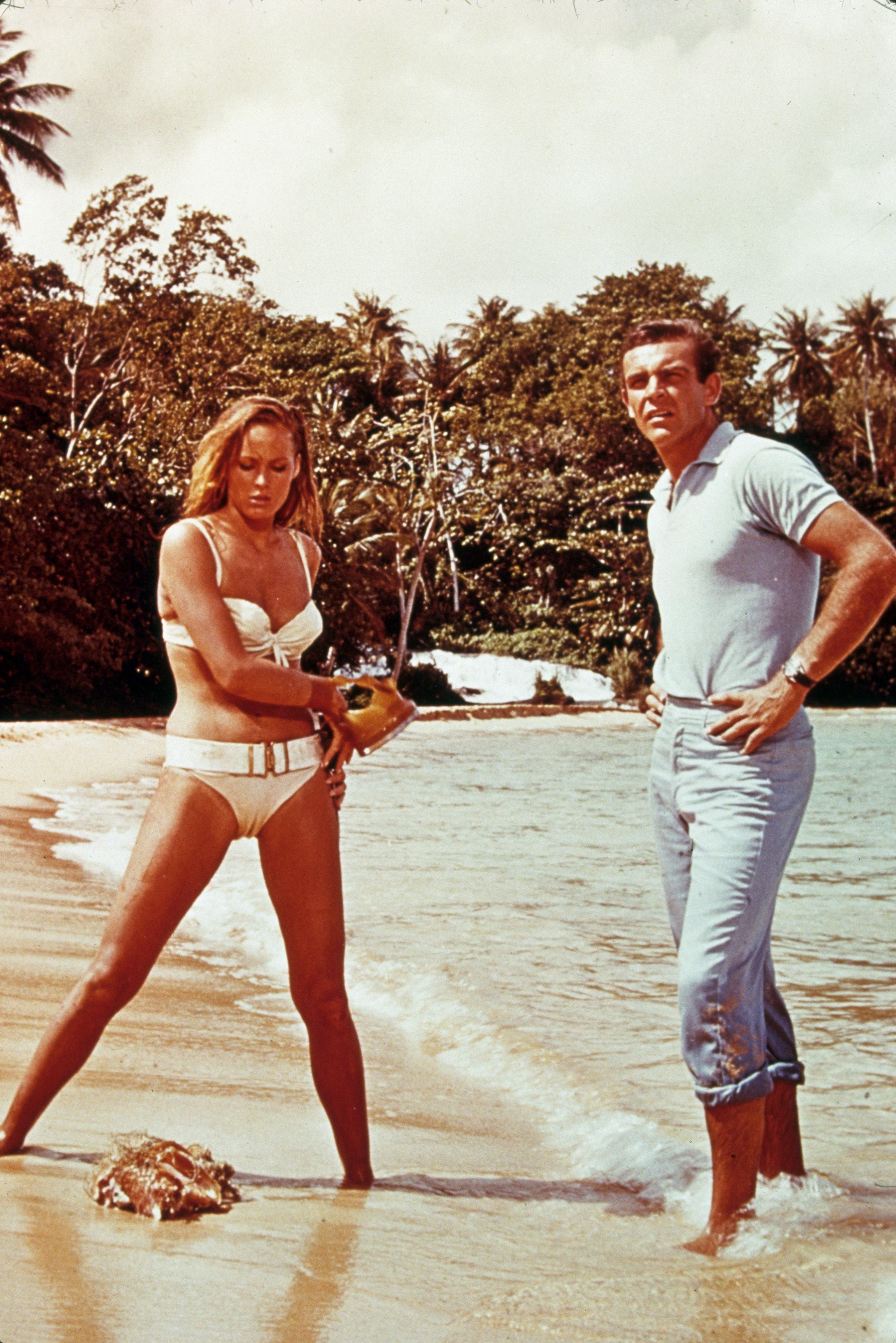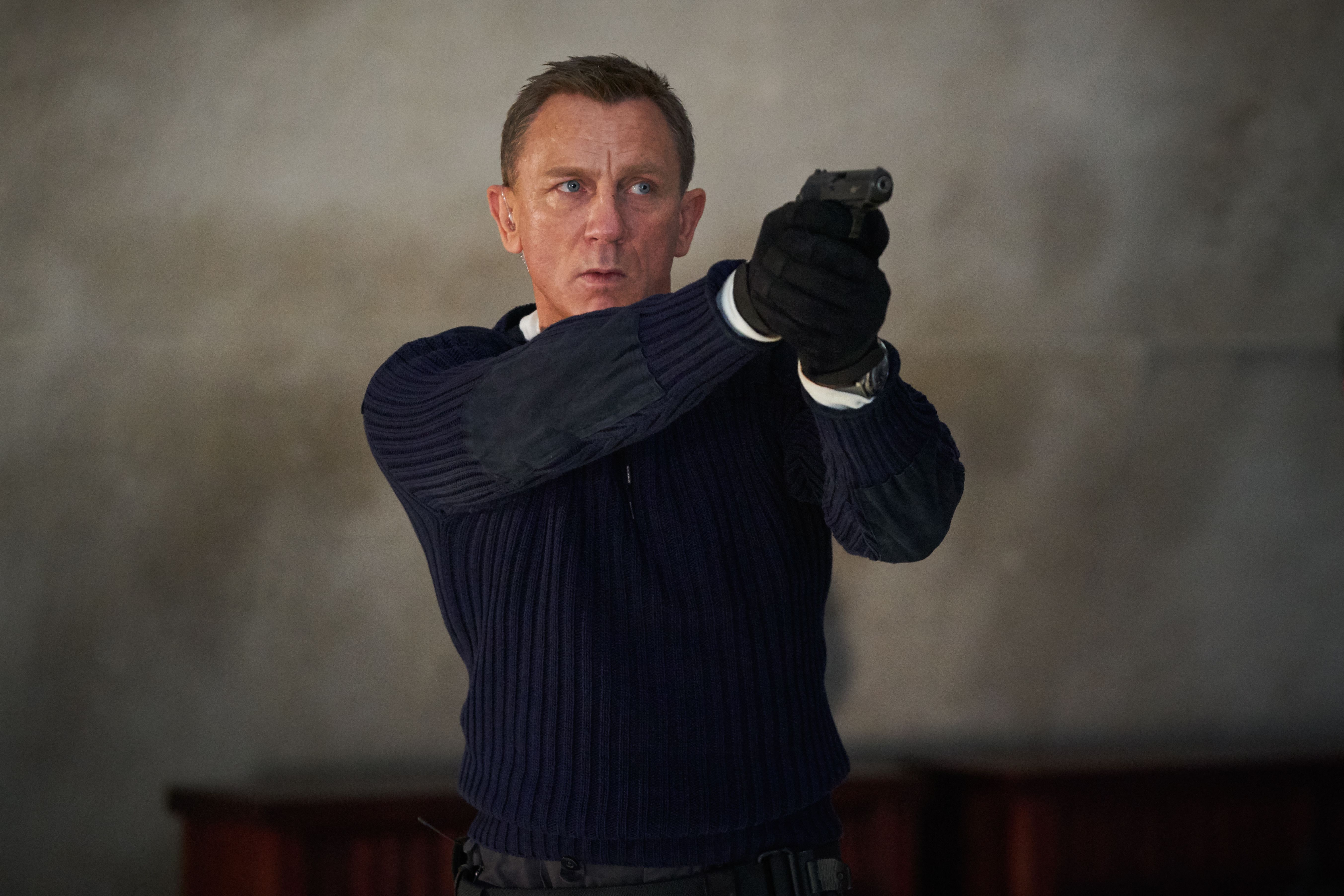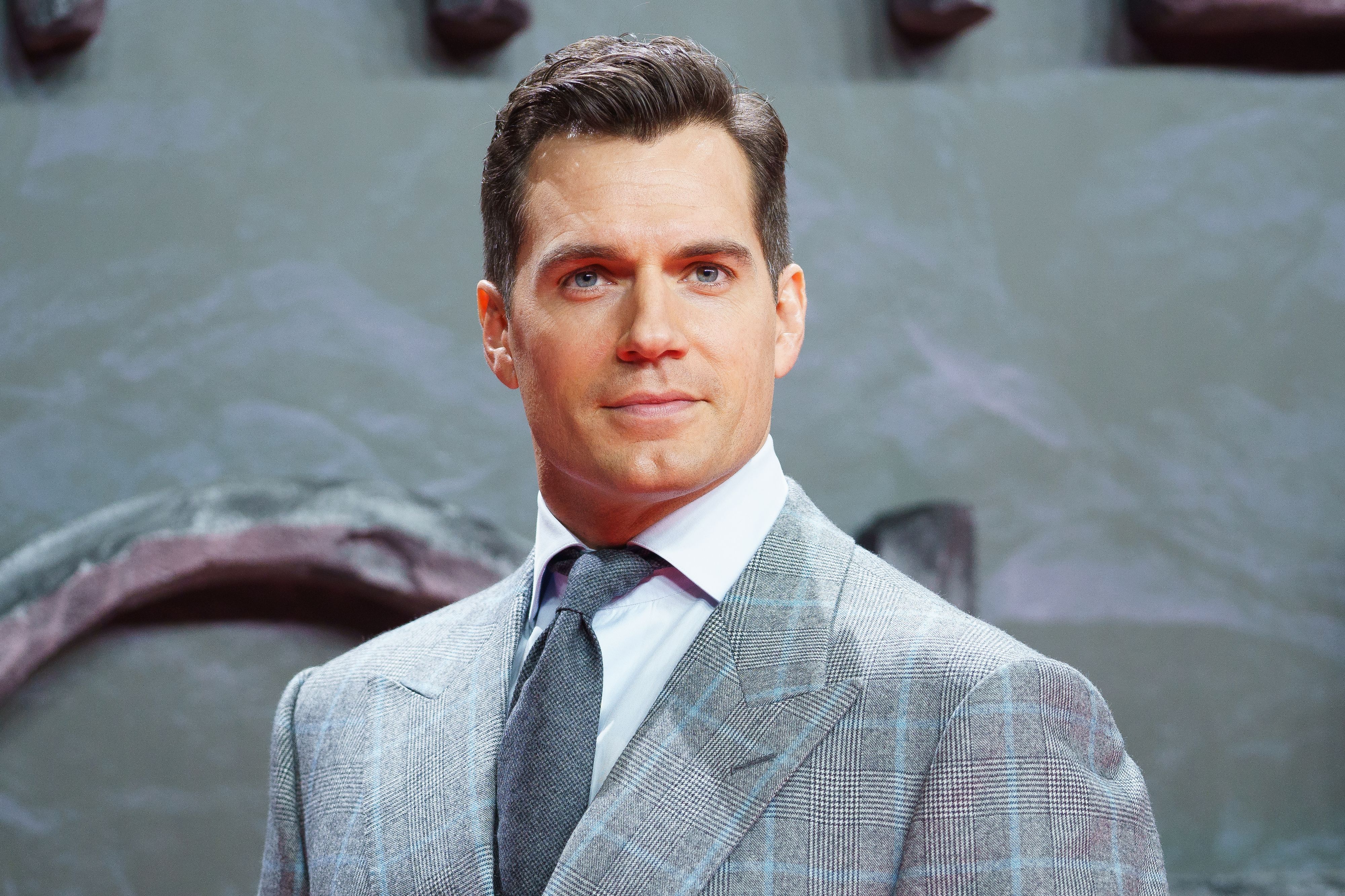Bond, James Bond: Why Sean Connery would be rehired if he walked back in through the door
As the BFI celebrates Bond at 60 with lots of screenings this weekend, Geoffrey Macnab looks back at the franchise’s first film ‘Dr No’ (1962), starring Sean Connery, to assess what credentials the producers will want this time around

It’s 60 years since Sean Connery’s 007 was first glimpsed on screen in Dr No (1962) in a scene set at 3am in a Mayfair casino. The secret agent was playing baccarat chemin de fer against Sylvia Trench (Eunice Grayson), winning all her money. “Bond... James Bond,” he revealed his name as the camera finally showed his face shrouded in a haze of his own cigarette smoke.
The BFI is marking the anniversary at the weekend with several Bond screenings, including Dr No and a preview of Mat Whitecross’s new documentary The Sound of 007, which tells the story of Bond music.
These celebrations come at a moment when everyone is asking... who will play James Bond next? Daniel Craig ended his tenure with No Time to Die in 2021. Now, there is a flurry of excitement over potential Bond contenders. It has been suggested that whoever is chosen will be committed to the role for a decade.
The hulking ex-Superman, Henry Cavill, remains the favourite, followed by Bridgerton’s Rege-Jean Page, Idris Elba from TV’s Luther and newly crowned Milton Keynes jiu-jitsu champion Tom Hardy narrowly behind him in the odds. James Norton has his champions as do Poldark’s pin-up Aidan Turner and 50 Shades of Grey’s Jamie Dornan.
The bookies aren’t expecting a female 007. Suranne Jones from Coronation Street and Gentleman Jack, Lydia West from It’s a Sin and Lashana Lynch, who impressed in No Time to Die, are all rank outsiders. Sam Mendes, though, has called for the next Bond film to be directed by a woman.
But despite the hysteria surrounding the coronation of the next king of spies, producers Barbara Broccoli and Michael G Wilson claim the search for the new Bond is still in its early days.
“First of all, we are not currently, actively, casting,” Broccoli tells me. “As you can imagine, we are in a position where we have to do a whole new reboot. There’s a whole thing that has to happen way before we start casting. It’s lovely that there is so much interest but the idea there are odds going on as if we are actively meeting with actors and talking to them, it’s absolutely not the case.”
She continues: “We want to celebrate the 60th anniversary and we’ll start next year talking about where we are going and start thinking about stories. Once we have got a sense of that, then we will start actively casting.”
The producers, though, are looking for a Bond who will stick with the franchise for several films. Some commentators have speculated that this will mean Elba, now 50, will be too old for the role. Are they after someone young?
“It depends what young is these days. My sense of what is young is changing. But they [the previous Bonds] have all started off in their thirties. That has always been the case,” Broccoli responds.
Amid all the commotion surrounding the Bond succession, it’s worth turning back to the beginnings of the $8bn franchise and asking how Dr No was conceived in the first place.
“We wouldn’t be here today if it were not for Sean Connery and all the people who made that original film,” Broccoli says of the first in the 25 film series. “We look at it often. It’s an amazing film. It still holds up.”

Wilson, meanwhile, cites the moment when Bond says “you’ve had your six” after his would-be assassin runs out of bullets. Bond kills the man. “Up to that moment, no hero in cinema had ever actually executed somebody. It [Dr No] really did establish a new genre of filmmaking.”
This wasn’t an easy film to finance or make. There were weather problems in Jamaica. The production budget was originally set at a modest £322,069, although the producers Cubby Broccoli and Harry Saltzman spent considerably more than that and encouraged their visionary production designer Ken Adam to think big. When the film went over budget by £70,000, the completion bond company took the project over – often a sign of looming disaster.
Saltzman and Cubby Broccoli, though, were marketing wizards who hustled the franchise into existence, creating huge anticipation around it but making sure that the public had little inkling of the challenges behind the scenes.
“The thing that really struck me is how things haven’t changed,” sighs Broccoli as she contemplates her own struggles on some of the subsequent Bond films. “They had a very small budget. They had weather problems, scheduling problems, [they were] losing locations, all kinds of dramas – and nothing has changed. We have the same problems. The budgets are much bigger but the problems remain.”
Ironically, Cubby Broccoli – Barabara’s father – who had gone into partnership with Saltzman in the summer of 1961, had originally wanted Cary Grant for the role. The dapper star was an obvious choice. As the hero of Alfred Hitchcock’s North by Northwest (1959), he had coped with intense action scenes while also displaying a nice line in self-deprecating humour. In Hitchcock’s Notorious (1946), he also displayed some of the sadism and sexual cruelty that went along with Bond.
“Cubby was very close friends with Cary Grant. He [Grant] was an amazing actor and an amazing man. At the time, they were trying to get the film made and, you know, there are lots of conversations when you’re trying to get a movie made. Often, having the star does the trick,” Broccoli says of her father’s courting of Grant. “I don’t think it went very far and I don’t think Cary Grant felt he was suitable for it. What we do know is that once they saw Sean Connery, they were determined to have him even though the studio had said no.”

Bond, as described by novelist Ian Fleming, was “a blunt instrument, wielded by a government department... quiet, hard, ruthless, sardonic, fatalistic”. Cubby Broccoli and Saltzman felt the young, relatively unknown Scottish actor was perfect.
“There’s a famous story about him [Connery] coming in the office at 3 Audley Square and when he left, both Cubby and Harry raced to the window to watch him walk across the street because he had this panther-like walk,” Broccoli says. "He had true charisma. It was really remarkable.”
The mythology that surrounds Connery’s casting overlooks an important factor – the Scot was inexpensive. He received £6,000 for the role, a decent sum in 1962 but a fraction of the fees paid to top Hollywood stars. Ursula Andress received £1,500 for playing Honeychile Ryder and Lois Maxwell was paid £200 for playing Miss Moneypenny for the first time. As film historian Charles Drazin has revealed in his book about the financing of Dr No, the entire cast budget for the first Bond film came to £21,064, a paltry amount.
There was no guarantee a second Bond movie would be made but Cubby Broccoli and Saltzman behaved as if the franchise was already long established. You can’t help but admire their chutzpah. The Dr No screenplay doesn’t waste time on such matters as Bond’s backstory or how he got recruited to MI5. The character arrived fully formed. All that seemed new was the Walther PPK gun, which 007’s bosses insisted he wear instead of his preferred, lightweight Beretta.
Most of the familiar elements that fed into the later pictures were already present: the badinage with Moneypenny whenever Bond goes to see his perennially grumpy boss M, the use of the Bond theme to crank up the tension, the fetishistic obsession with cars and guns, the Maurice Binder titles with the gun barrel logo and abstract images of women dancing.
There is nothing tentative about Connery’s performance either, no sense he is feeling his way into the role. The only moment in the entire film he looks remotely nervous is when a tarantula is crawling over his body.
Historian Max Hastings recently claimed that the film opened to “poor reviews and takings” and only became a hit because its “tale of a Chinese millionaire rocket-fancier in the Caribbean on the payroll of Moscow” seemed suddenly very topical during the Cuban missile crisis – which started in mid-October, just under a fortnight after the film’s UK premiere.

As Broccoli and Wilson explain, this is only partially true. The film was a big hit in the UK but wasn’t released in America until the early summer of 1963, several months after the crisis was over.
“In America, they were worried about it because they thought it would be too English,” Broccoli says of the US distributors’ reservations about Dr No. “They had put it in secondary screening theatres, drive-ins and things like that. They had to re-release it later because it had become a sensation. I think the Kennedy era, the Cuban missile crisis and everything, probably helped but it was a pretty astounding film. It had action, it had sex, it had all these incredible things. And most importantly it had Sean Connery... and Ursula Andress.”
The film boosted everything from tourism to Jamaica to bikini sales, thanks to the famous scene of Andress emerging from the waves in her white bikini on Crab Key island.
Sixty years on, Broccoli and Wilson are tasked with reinventing the series while staying as true as they can to Fleming’s vision. It’s an astonishing balancing act that has only become more difficult as the years have passed.
“We embrace the audiences and are happy to see that they are so interested and continue to be interested,” Wilson says. ”Part of our job is to try not to disappoint them but at the same time to give them something they haven’t seen before.”
If in doubt, the producers always go back to the novels and short stories. “Fleming’s character is a rich character. There is always something there to help you – to remind you of aspects of the character that maybe you haven’t thought about or that you want to reinvent,” notes Wilson, who has writer credits on many of the movies.
The violent, sadistic spy created by Fleming has now been a guest at Buckingham Palace. His encounter with royalty at the start of the 2012 London Olympics was mentioned in almost every obituary of the Queen. Bond is not Paddington Bear. How, then, has he turned into such a cherished figure in British popular culture?

“I think the reason there was that connection [between the Queen and Bond] is that they both exemplified service. The Queen, absolutely, 70 years of dedicated service and, you know, for Bond, service is what he does. He was all about Queen and country. Now, he will be about King and country. I think that is the thing people recognised and appreciated,” Broccoli suggests, making Britain’s favourite spy sound like the ultimate patriot.
Ask her about Bond’s off-duty pursuit of pleasure over the past six decades and Broccoli has an explanation for that too. “The hedonistic elements are because he is a man who feels he has a very short lifespan. He is an assassin but he is also the prey of other assassins... he is going to make the most of his moments because he doesn’t know from one day to the next if he is going to survive. He wants to live life to the fullest.”
Broccoli and Wilson may not yet have a clue who will be drinking the dry martinis in the next Bond movie but both are pretty certain about one thing. “If Sean Connery walked through the door today, I think we would hire him,” Broccoli jokes.
‘James Bond at 60 Weekend’ at BFI Southbank and BFI Imax runs 30 September to 2 October; www.bfi.org.uk






Join our commenting forum
Join thought-provoking conversations, follow other Independent readers and see their replies
37Comments